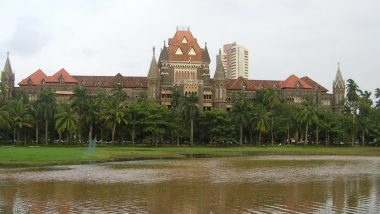Mumbai, October 29: The Bombay High Court ruled on Monday that no person, including judges, would be entitled to hold more than one house or tenement at a time in Maharashtra under any state government scheme.
A division bench of justices B R Gavai and Bharti Dangre said there was nothing wrong if the government floated a scheme to allot houses to judges and other persons at a concessional rate, but if a person took advantage of this and obtained more than one house, it would amount to using their position for unjust enrichment. PM Narendra Modi to Hand over Keys of Houses to PMAY Beneficiaries in Maharashtra's Shirdi Temple.
The court passed its order in a public interest litigation, filed by former journalist Ketan Tirodkar, questioning the state government's decision to construct a high-rise residential building in suburban Oshiwara for sitting HC judges.
Tirodkar in the petition said the procedure followed in allotting houses in the said society was wrong and that a "pick-and-choose method" was being used.
The building has a total of 63 tenements, of which 39 have been allotted to sitting high court judges.
Tirodkar in his petition claimed that some of the judges who were allotted flats in the building, already had houses under a different scheme of the government.
The high court in its judgement directed the state government to formulate a scheme by which a person, including judges, would be entitled to only one house/tenement under any scheme in the state.
However, if a person wants to upgrade or opt for a flat in any other city, he or she would have to surrender the existing flat to the government so as to be entitled for allotment in a better scheme, the court said.
"It is not possible for judges of this court who, after sacrificing their practice, have answered the call to serve the nation and the society, by becoming a judge, to purchase a flat/house from the open market in a city like Mumbai," the court said.
As such, there should be nothing wrong if the government floats a scheme for special category for such persons (judges), the order said.
"However, having one house/tenement from any of the schemes floated by the state government or any other authority under its control and having multiple houses/tenements from the state government are two different things," it said.
"We have no hesitation to observe that if a person gets the advantage of allotment of the tenements/houses from the government at a concessional rate on more than one occasions, it would amount to nothing else but using the office for unjust enrichment," the court said in its order.
It further observed that judges held an important constitutional office and as such, were expected to be people of the highest moral standards. The HC added that while it is always said that the judiciary is not answerable to anyone, the answer to this is that the judges are accountable to their own conscience.
The court directed the government to formulate the policy within a period of six months. Regarding the remaining 24 flats in the said building at Oshiwara, the court directed the registrar general of the high court to draw up a list of sitting HC judges as per seniority and find out from them if they wished to opt for the said allotment and submit the list to the government.













 Quickly
Quickly





















